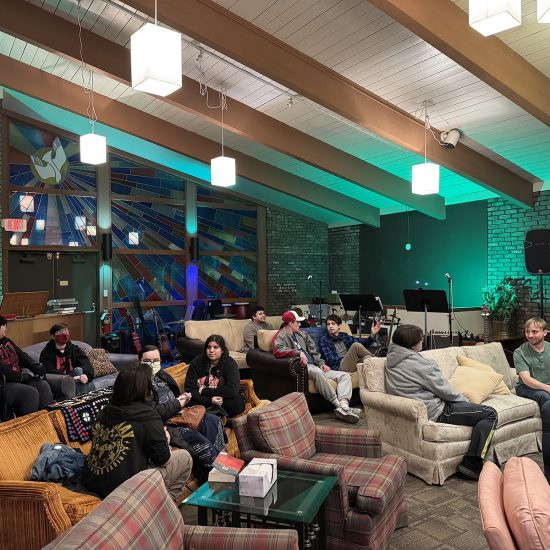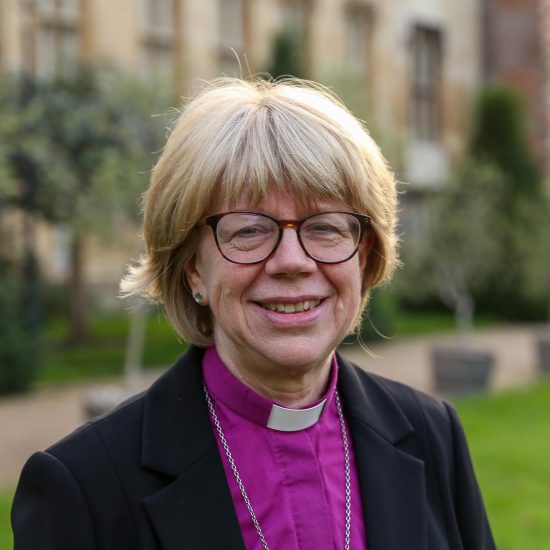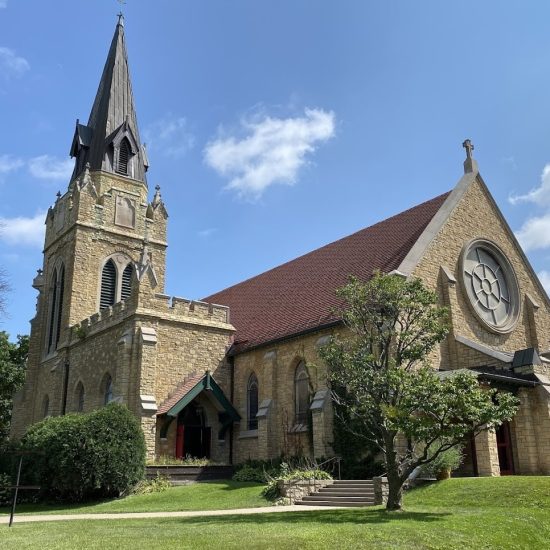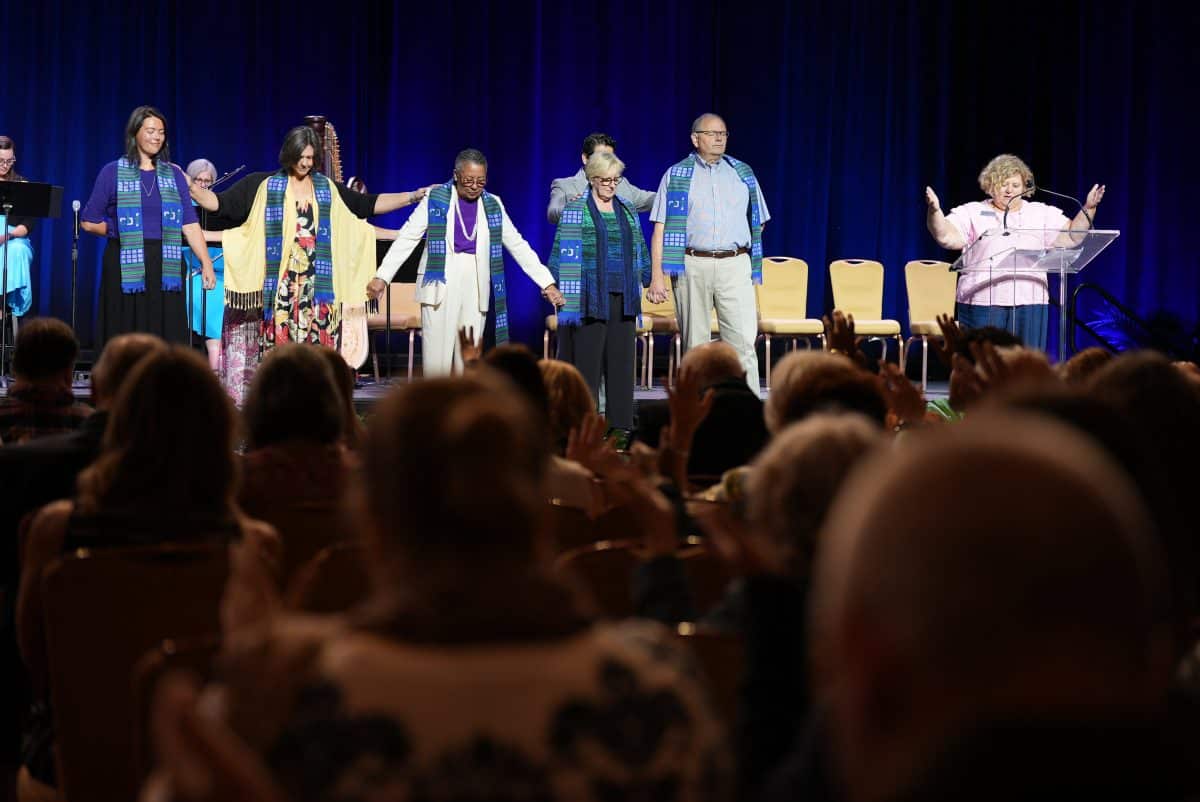
When I arrived in Atlanta for the Cooperative Baptist Fellowship General Assembly this year, I soon noticed there was a palpable uniqueness in crowd energy from past General Assemblies. As a social and cultural historian, I rarely intend to gauge one year of assembly in terms of whether it was better than past CBF events. Instead, I want to analyze the terms of this uniqueness. Why does the energy of the people in attendance feel different than before, and how might I describe it? Based on what I witnessed, the CBF General Assembly energy had the character of a people seeking to function well together and figure out the post-COVID existence of their denomination.
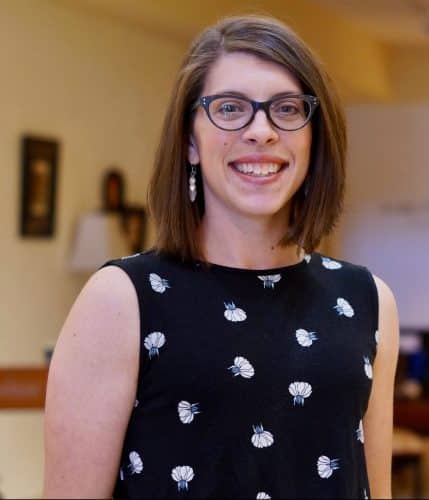
Laura Levens
The United States as a whole is more active in ways not seen since before the pandemic, and it is reasonable to suppose that CBF has absorbed some of the larger cultural energy. In no way does this suggest that COVID pandemic concerns are over or that energy has returned to every quarter, but I spoke with several church leaders who reported a renewed energy for activity within their congregations. People seem anxious to figure out the future and to get to work, and there is no guarantee that the energy levels seen now will continue into 2024. Perhaps the larger CBF theme of “Holy Ambition” crafted by the leadership was in response to our present cultural moment of energetic activity in search of renewed purpose.
The people as a whole also exhibited their own will for a denomination that functions with ethical standards and a clear purpose in the world. As fellow columnist David Gushee has surmised, this behavior may be in reaction to the very public and toxic dysfunction seen among the Southern Baptist Convention leadership of late. And yet, there was also a feeling of shared determination between CBF crowds and speakers to make their own way into the future and not allow the SBC to provoke any more knee-jerk reactions. Gushee acknowledged this shared determination in his remarks on the Baptist Joint Committee’s advocacy of religious liberty for all persons of faith and the multiple occasions where Black leaders spoke to audiences openly willing to listen to “honest reckoning with the history of white supremacism and uncompromising commitment to genuine racial justice.”
The Rev. Kat Kimmel provided another expression of determination to be guided by wise discernment for the future. In her charitable and pastoral sermon on Hebrews 10:19-25, Rev. Kimmel called the denomination toward “holy provocation” during closing worship. Noting that provocation only happens in community and not in isolation, Kimmel encouraged the audience, “Don’t give up. Get a little pesky … When we provoke one another enough that we really learn what love is, and when we show up for each other we find the ground we’re standing on is really holy, that we are no longer just ourselves, but we are bonded together by a love that never runs out, bonded together in a body greater than any one of us alone.” Kimmel’s message was one of many moments exhibiting a shift in priorities and expectations resulting from the long periods of uncertainty and isolation since 2020. I believe CBF General Assembly had different energy because many things central to the past may have been released as less important for the present. There was a looseness to expectations inside the energy to get to work and a willingness to show up and see what might happen next.
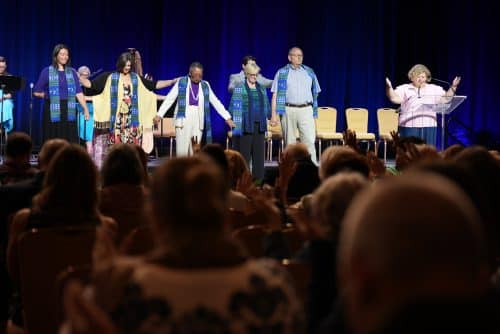
Friday worship during the 2023 CBF General Assembly / courtesy of Cooperative Baptist Fellowship
Speaking of showing up to see what happens next, two significant groups that had held their own separate events in alternate locations in years past were included and publicly welcomed by CBF leadership in this year’s General Assembly. The Association of Welcoming and Affirming Baptists, an organization committed to building the beloved community through full inclusion of all people regardless of gender identity or sexual orientation, held an afternoon reception that almost three hundred people attended. As I stood near the door as people continued to push their way into the ballroom, the energy in the back was of surprise and delight that CBF Executive Coordinator Paul Baxley was there to express support and that AWAB had displayed incredible generosity as hosts for such a large party.
Baptist Women in Ministry, a national organization of support and advocacy for women in ministry, performed a much larger role for CBF General Assembly than I can recall in recent memory. For the first time, BWIM held a large celebratory dinner midway through CBF General Assembly instead of the usual separate worship service and luncheon. With a bold vision plan for the future of their organization and an equally bold financial campaign, BWIM led the way in setting an ambitious vision for a future “where women thrive as they minister and lead within Baptist communities.” Along with this vision, BWIM has mapped out a step-by-step theory of change map to address the personal and systemic barriers to women’s thriving as leaders in congregational life. Earlier in the day, BWIM and CBF rolled out their jointly sponsored curriculum resource, Equally Called, as a means to “help your church articulate the biblical and theological basis for affirming the calling of women and nurture a culture that more fully welcomes their leadership.”
The reorganization of events for BWIM was due in part to their anticipated 40th anniversary celebration in Louisville later this year on October 2-4. As I sat among the dinner audience, however, I wondered how BWIM would continue to shape the CBF General Assembly and the denomination in the future. There seems to be an open-armed desire by CBF at large to have both BWIM and AWAB continue to be an integral part of the General Assembly and the denomination’s discernment of its future.
I am sure there are more contours to the energy at the 2023 General Assembly that I have not yet named. And I repeat, this column is meant to take the pulse of the present and not judge the past. Surely with the CBF turning thirty-one years old, this energy also carries the growing pains and resulting maturity that the denomination has gained throughout the years. From my view amidst the crowd, I have described what I could about the unique energy at CBF General Assembly. Only time will tell whether the unique energy of 2023 is carried on into 2024 and beyond — especially as both CBF leaders and its membership decide the future course of the denomination.
Laura Levens is an assistant professor of Christian mission at the Baptist Seminary of Kentucky, and a board member for Word&Way. She is currently working on a book about the mission theology and practice of Ann Hasseltine Judson.


